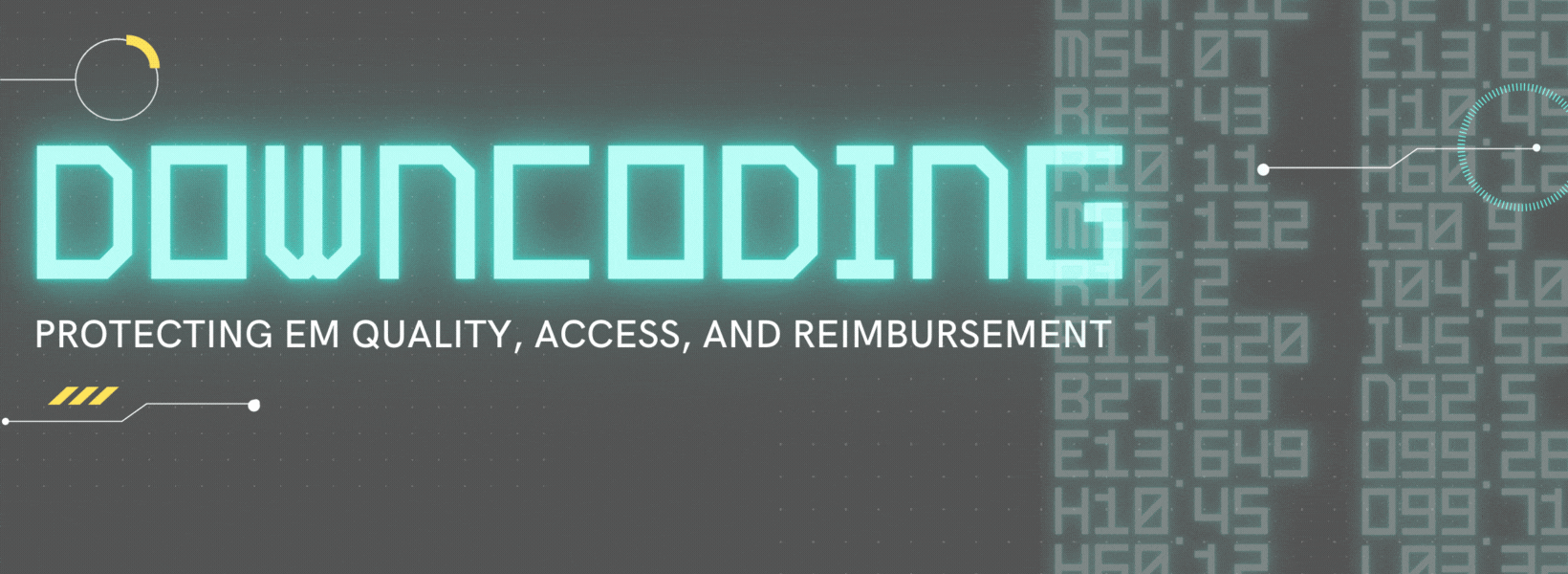Updates on Downcoding
The Issue with ED Downcoding
Downcoding by Medicaid and insurers is a growing problem that threatens quality and access to care, as well as fair emergency physician reimbursement. Last year, VACEP and our partners began battling a state budget item that dramatically reduces Medicaid payments for hospital emergency department visits. In addition, UnitedHealthcare announced last week they would begin retroactively denying some emergency claims (a policy it has since walked back).
The Virginia Medicaid and UHC policies are misguided attempts to reduce emergency department overutilization. Such policies negatively impact patients, health equity, and the healthcare safety net. While high rates of emergency department use and hospital readmission among Medicaid beneficiaries are problems worth addressing, penalizing hospitals and physicians is not the way to accomplish these goals. Over-utilization is an issue that rightfully should be fixed by the public as a whole, through system-wide health care and social services reform.
THE LATEST WITH UHC
Good news: This week, ACEP learned that UHC is reversing course. The insurer said:
“Based on feedback from our provider partners and discussions with medical societies, we have decided to delay the implementation of our emergency department policy until at least the end of the national public health emergency period.”
While the work isn't done and their language leaves room for them to try again once COVID-19 has fully waned, it was ACEP's swift lobbying and public-relations action that caused UHC to retreat only six days after making their initial announcement.
An update on Virginia’s Medicaid budget item
Meanwhile, Virginia’s policy is shortchanging, by $40 million, emergency physicians and hospitals that treat Medicaid patients. The policy guts funding to EDs and physicians by automatically “downcoding” nearly 800 emergency conditions for Medicaid patients — many of them common and acute diagnoses. Reimbursement for these conditions is slashed to only $15.45 if the diagnosis determined, after-the-fact, to be on the list of these “avoidable” codes. You can read about our efforts in 2020, including our court challenges, here.
OUR PROPOSED FIX: With our partners at the Virginia Hospital and Healthcare Association and Collective Medical, we developed a replacement program with the goal of truly lowering annual ER utilization and corresponding costs for a group of 1,500 high-utilizer Medicaid patients. We’d do it by managing these patients using complex care teams. We anticipated a 40% reduction in costs within the first year of the program. This would equate to $36 million in savings. Unfortunately, neither the alternative program was adopted nor was the problematic ER utilization program eliminated.
WHAT IS HAPPENING NOW: We continue to work with VHHA and the complex care team contractor to uncover more opportunities. We are also working with key legislators to educate them about the problematic downcoding program.
Our focus is on key House of Delegates members to make this a budget priority.
In addition, we are exploring the idea of getting a Substance Abuse and Mental Health Services Administration (SAMHSA) grant to set up complex care teams around the Commonwealth. They would focus on ER super-utilizers who have substance abuse/behavioral health issues. The goal is to expand our complex care team model to include more patients, while also showing how successful these programs are to reduce ER utilization. We want to prove that reducing utilization is better than simply not paying physicians and hospitals for patient care.
Finally, we are waiting to hear more about the lawsuit VHHA and VACEP filed last year, asking for an injunction of the utilization program. That suit is in appeal. We are also awaiting a decision from CMS as to whether the state will be granted a plan amendment to allow this program to continue. The Virginia budget language allowed the program to start without CMS approval on July 1, 2020.



